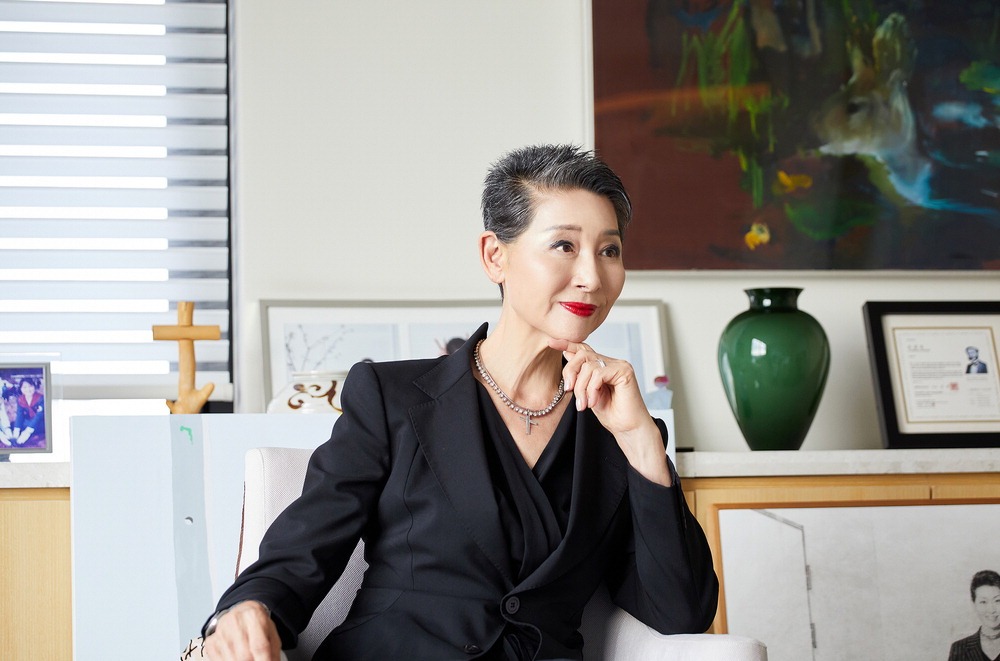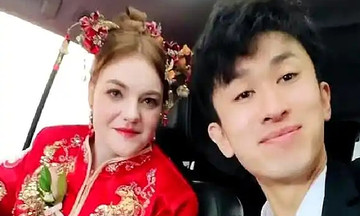Born in 1956, Kim Sung-joo was the youngest of six children of Kim Soo-keun, chairman of the Daesung energy group. At the age of 3, she moved with her family from Daegu to Seoul, residing in Donamjang, the former residence of South Korea's first president.
Their Joseon Dynasty-style oak house, now owned by her brother, was staffed with 10 maids, 5 chauffeurs, and two cleaners. Her Confucian father and Christian mother expected her to marry someone of equal social standing and become a homemaker.
"But I was the family rebel," she said. Sung-joo was shocked when her parents expressed disapproval of her older sisters' academic achievements, fearing it would hinder their marriage prospects.
At 21, she secretly applied to Amherst College in the US to study sociology. To persuade her father, she enlisted 16 prominent alumni, including former South Korean ministers and ambassadors.
Kim Soo-keun, a powerful figure in the South Korean business world, couldn't refuse.
 |
Kim Sung-joo, chairwoman of Sungjoo Group, in her office at the MCM building in Nonhyeon-dong, Seoul, 10/2024. Photo: MK Korea |
Kim Sung-joo, chairwoman of Sungjoo Group, in her office at the MCM building in Nonhyeon-dong, Seoul, 10/2024. Photo: MK Korea
During summer breaks, Sung-joo secretly waited tables and cleaned restrooms, viewing it as preparation for real life. "I realized that being raised as a rich girl didn't reflect who I really was," she said.
After Amherst, she earned master's degrees in international relations from the London School of Economics and in business administration from Harvard.
In the mid-1980s, her parents summoned her home for an arranged marriage to a fellow chaebol (family-controlled conglomerate) heir. Such unions were seen as strategic alliances among South Korea's elite.
However, while at Harvard, Sung-joo fell in love with a British-Canadian man. Believing in her right to choose her partner, she rejected the arranged marriage and proposed to her boyfriend, surprising him. They married within a week.
The 1985 wedding cost $100, covering an organist and inexpensive rings. Friends provided food, drinks, and a festive atmosphere. She likened herself to "a satellite falling out of orbit and into a black hole."
Defying her family led to immediate disownment, leaving her without resources and completely cut off from her relatives. For the next 5 years, her siblings were forbidden from contacting her.
In South Korea, particularly among the upper class, marrying a foreigner was taboo. Sung-joo was considered a threat to her family's reputation in a homogenous society where mixed-race heritage was often stigmatized.
Severed from her family and financial support, she started anew. While her husband finished his studies, she worked in the planning department for Marvin Traub, chairman of Bloomingdale’s in Manhattan.
Kim Sung-joo's entrepreneurial journey began upon returning to Seoul for medical treatment. In 1988, after the Summer Olympics in South Korea, the government liberalized luxury imports. The market shifted, and business opportunities arose.
Two years later, she founded Sungjoo Group, securing the Gucci franchise for South Korea. She introduced other international brands like Sonia Rykiel, Yves Saint Laurent, and Marks & Spencer. Her M&S operation became Asia's largest franchise.
The 1998 Asian financial crisis devastated her businesses, forcing her to sell the Gucci franchise. However, this became a turning point.
In 2005, she acquired MCM, a small licensing business with 70 employees. Two decades later, it has over 1,200 full-time employees, becoming Sungjoo Group's flagship brand.
She repositioned MCM for a new generation, hiring former Adidas creative director Dirk Schönberger as global brand officer in 2018.
Collaborations with Billie Eilish, Cara Delevingne, and Bi Rain connected MCM with young global travelers who value mobility and self-expression through brands.
MCM now operates in 40 countries with 650 stores, including 150 directly operated and the rest wholesale. Global revenue reaches $500 million annually, with Asia accounting for 50%.
Later, a sister secretly contacted her, leading to reconciliation. Years later, her parents accepted her choices and achievements, agreeing to reunite.
Sung-joo believes leaving the chaebol system, marrying a foreigner, and building her own career allowed her to live authentically.
"Life shouldn't be defined by where you're born or others' expectations. Live without regrets," she said.
Ngoc Ngan (According to FT, Straits Times)












